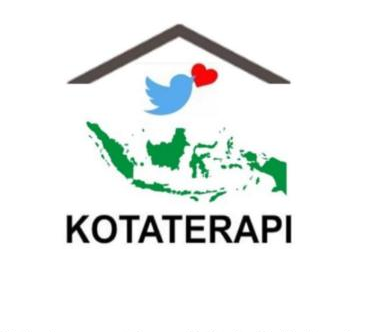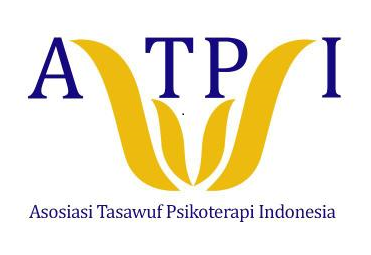Kisah Nabi Ismail dalam Perspektif Ilmu Tasawuf
Studi Kasus Keridhoan Orang tua Mahasiswi beasiswa KIP-K
DOI:
https://doi.org/10.28918/jousip.v3i2.1401Keywords:
ridho, prophet ishmael, scholarship, islamic boarding schoolAbstract
This study examines the blessing of parents of Kip-K scholarship students on the requirements that must be done by scholarship recipients. Every Kip-K scholarship student is required to live in a boarding school for one year at the beginning of the course. In this case, the researchers used a qualitative method to track parents ' responses to the policy. Furthermore, the researcher applied the case study approach of the story of Prophet Ismail as a basis to make ridho that can be applied by student parents. The results showed that there are parents who are happy and there are also parents who have not been happy with their children living in boarding schools. Some say that living in a boarding school provides religious insight and as a way of moral formation of religious children. While some other parents claim to be worried about the circumstances and needs of their children while in boarding schools. Therefore, there is a need for prayer and effort so that parents give their blessing to scholarship recipients such as ridhonya Prophet Ismail who was slaughtered by his father at the behest of Allah SWT. Parents who are blessed are very influential on the development of children's learning so that children do not feel worried and feel safe for one year living in boarding schools. The role of children in convincing their parents to accept the policies that have been implemented is the main key in handling this case.
References
Admizal, Iril. (2021). Takdir Dalam Islam (Suatu Kajian Tematik). Ishlah: Jurnal Ilmu Ushuluddin, Adab dan Dakwah. 3(1).
Adnan. (2017). Perjalanan Rohani Perspektif Kaum Sufi. Syifa al-Qulub: Jurnal Studi Psikoterapi Sufistik. 1(2).
Amarullah, Risal Qori. (2023). Model Pendidikan Keluarga Nabi Ibrahim. Edusifa: Jurnal Pendidikan Islam. 8(2).
Amirudin. (2021). Takdir dalam Persefektif Alquran. Jurnal ilmu Alquran dan Tafsir. 2(2).
Badwi, A. (2017). Metode dalam MencaapiI Kesufian (Perkembagan Tasawuf dan Maqamat dalam ilmu Tasawuf). Ash-Shahabah: Jurnal Pendidikan dan Studi Islam. 3(1).
Fathani, Hamzah S. (2018). Ridha dalam konteks Pedagogik (Relevansi antara Nilai dengan Implementasi Pembelajaran. Jurnal Shaut Al-Arabiyah. 6(1).
Ibrahim Jumadi, dkk. (2022). Nilai-nilai Pendidikan Tauhid dalam Kisah Nabi Ibrahim dan Ismail (Kajian Analisis Surat Ash Shaffat Ayat 99-107 dalam Tafsir Ibnu Katsir). Edumaspul: Jurnal Pendidikan. 6(1).
Imaduddin Abu Fida' Ismail bin Katsir Al-Quraisyi Al-Dimasyqi. (2013). Kisah Para Nabi Ibnu Katsir. Jakarta: Ummul Qura.
Maimun. (2017). Psikologi Pengasuhan Mengasuh Tumbuh Kembang Anak dengan Ilmu. Mataram: Sanabil.
Miswar. (2017). Maqamat (tahapan yang harus ditempuh dalam proses bertasawuf. Jurnal Ansirupai. 1(2).
Nugroho, Fajar; Santoso, Budi. (2019). Pesan Pemberitaan dalam Film Munafik 2 (Studi Analisis Isi Deskriptif Kualitatif Film Munafik 2) . Tesis PhD. Universitas Muhammadiyah Surakarta.
Nasirudin. (2015). Akhlaq Pendidik (Upaya Membentuk Kompetensi Soiritual dan Sosial). Semarang: UIN Walisongo.
Rasyid, R., & Burga, M. A. Q. (2017). Nilai Pendidikan Islam dalam Ibadah Qurban: Kritik terhadap Praktik Pendidikan Modern. Jurnal Alaudin Press. 2(1).
Putra Ahmad, Sartika Suryadinata. (2020). Menelaah Fenomena Klitih di Yogyakarta Dalam Perspektif Tindakan Sosial dan Perubahan Sosial Max Weber. Asketik: Agama dan Perubahan Sosial. 4(1).
Sunarty, Kustiah. (2015). Pola Asuh Orang tua dan Kemandirian Anak. Makasar: Edukasi Mitra Grafika.
Downloads
Published
Issue
Section
License
Copyright (c) 2023 Diah Ayuni, Syamsul Bakhri

This work is licensed under a Creative Commons Attribution-ShareAlike 4.0 International License.

















